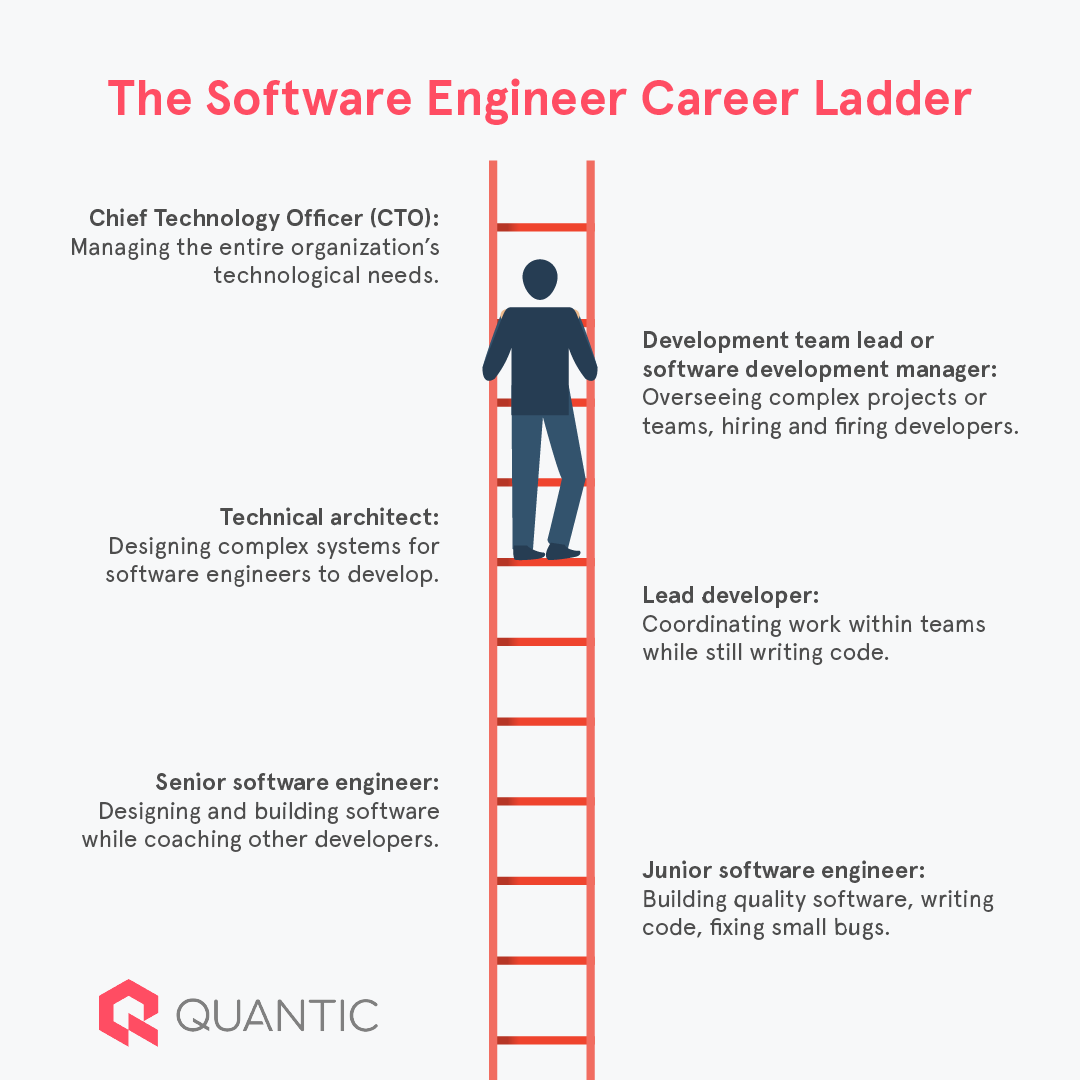A career in software development is highly valuable and rewarding. It offers diverse opportunities and competitive salaries.
Emerging as one of the most dynamic fields, software development is a magnet for those passionate about technology and innovation. Pursuing a career in this domain promises exposure to the latest technological advancements and a chance to contribute to the digital landscape’s evolution.
The demand for skilled software developers continues to surge as industries across the board increasingly rely on technology to operate and innovate. With the promise of robust job security, the learning curve in software development also presents an unparalleled opportunity for continuous professional growth. Those willing to invest time in mastering coding languages and development tools can expect an exciting career with the potential for substantial financial and personal fulfillment.
Evolving Landscape Of Software Development
The tech scene is ever-changing, making a career in software development both thrilling and rewarding. Far from stagnant, the industry demands professionals who thrive on constant learning and adaptation. Let’s dive into the exciting and evolving landscape of software development.
Rise Of The Digital Era
The digital era has firmly taken root, transforming how we live and work. Nearly every aspect of life now intertwines with technology. This transformation has catapulted the demand for software developers to new heights. Bold innovations and digital solutions are the new normal, and they are reshaping industries across the globe.
- Healthcare: Electronic medical records and telemedicine have revolutionized patient care.
- Education: E-learning platforms and digital classrooms have created new learning pathways.
- Finance: Fintech has disrupted traditional banking with mobile payments and blockchain technology.
Continuous Innovation In Technology
Technology does not sit still, and neither does its development. The software landscape is a hotbed of innovation. From cloud computing to artificial intelligence, new technologies continue to emerge. These advancements drive software developers to continually learn and grow. Knowledge gained today may need an update tomorrow; such is the pace of this field.
| Year | Technological Advancement |
|---|---|
| 2020 | AI has become mainstream in business applications. |
| 2021 | Augmented reality enhances user experiences. |
| 2022 | 5G technology boosts mobile connectivity. |
| 2023 | Quantum computing starts influencing software solutions. |
Those who choose a software development career must be ready to embrace this relentless pace of change. With each innovation, developers unlock new possibilities and challenges. While daunting, this also ensures a dynamic and future-proof career full of exciting opportunities.

Credit: www.educba.com
Defining A Career In Software Development
Defining a Career in Software Development means charting a path in the expansive tech landscape. It’s a journey of creating, designing, and maintaining software that powers businesses, entertainment, and our daily lives. From coding to problem-solving, a software development career offers a fusion of creativity and technical skill.
Roles And Responsibilities
A career in software development spans various roles, each with unique contributions:
- Programmers write and test code for software applications.
- Developers turn ideas into functioning programs.
- Software Engineers apply engineering principles to software creation.
- Architects design the overarching structure of software systems.
- Project Managers oversee the development process from conception to delivery.
- Quality Assurance Testers ensure software is bug-free and user-ready.
Required Skill Sets
To thrive in software development, a diverse skill set is essential. Must-have skills include:
| Technical Skills | Soft Skills |
|---|---|
|
|
Perks Of Pursuing Software Development
Software Development is not just about coding. It opens doors to several opportunities. Let’s explore the benefits of a career in this field.
Competitive Salaries
Money talks, and in the world of software development, it speaks volumes. Developers often start with high entry-level pay. Here’s a look at why the pay is so good:
- Demand exceeds supply, pushing up salaries.
- Complex skills get top dollar.
- Experience can quickly lead to six-figure salaries.
Flexibility And Remote Work Opportunities
Software developers enjoy unmatched work flexibility. Imagine working from anywhere, at any time. The reasons for this flexibility include:
- Many tasks are project-based, allowing for asynchronous work.
- Technology enables seamless remote collaboration.
Companies know that happy developers are productive. So they offer remote jobs and flexible schedules.

Credit: www.tatvasoft.com
Challenges In Software Development Careers
Embarking on a software development career brings a range of challenges. Mastery of coding languages and frameworks is just the beginning. The journey demands continuous learning and balancing life priorities, which is no small feat. Let’s delve into these challenges in greater detail.
Keeping Pace With Rapid Changes
The technology landscape evolves swiftly. Software developers must keep updated to remain relevant. This requires dedication and a commitment to lifelong learning. For many professionals, this means:
- Regularly exploring new programming languages
- Familiarization with emerging frameworks
- Adapting to new tools and technologies
Such diligence is critical for career progression. It may mean sacrificing after-work hours to study and improve, often attending courses or certifications to keep skills sharp.
Work-life Balance Considerations
Striking a healthy work-life balance is particularly tricky in the fast-paced world of software development. Many developers face:
- Long hours of coding and debugging
- High-pressure project deadlines
- Expectations to work outside standard business hours
This career path can lead to stress and burnout if not managed properly. It’s essential to set boundaries and prioritize personal time. Families, hobbies, and rest are just as critical to a developer’s success as their technical talents.
Education And Training Paths
Choosing the right education and training path is vital for a successful career in software development. The options available cater to different learning styles, time commitments, and budgets. Understanding these routes is the first step to embarking on this rewarding professional journey.
Formal Education Vs. Bootcamps
Formal education often involves a multi-year degree at a university. This path provides a comprehensive understanding of computer science principles. Here are the key points:
- Degree Programs: Typically lasting 3-4 years for a bachelor’s, longer for master’s.
- Courses: Cover a wide range of topics from algorithms to software engineering.
- Internships: Opportunities provided for real-world experience.
In contrast, boot camps offer an immersive learning experience over a shorter period. Highlights include:
- Duration: Often range from 3-12 months.
- Focus: Concentrated on practical skills for immediate employability.
- Cost: Generally less expensive than a traditional degree.
Self-learning And Online Resources
Self-learning and online resources make software development accessible to many. Key advantages of this route are:
- Flexibility: Learn at your own pace and schedule.
- Variety: Myriad courses and tutorials are available online.
- Cost-Effective: Many resources, including open-source learning platforms, are free or low-cost.
Here are some ways to self-educate in software development:
- Follow online tutorials and coding challenges.
- Build projects and use version control like
Git. - Participate in developer communities and forums.
Self-motivation and discipline are crucial for those who choose the self-taught path.

Credit: www.pinterest.com
Market Demand For Software Developers
The market demand for software developers remains at an all-time high. Industries across the board are integrating tech solutions into their operations.
From startups to multinational corporations, the need for skilled software professionals continues to surge.
Industry Needs For Software Talent
Software talent is a key asset in today’s digital economy. Nearly every industry sector is on the lookout for developers to maintain a competitive edge.
- Tech companies lead in hiring CODERS and ENGINEERS.
- Healthcare organizations require developers for patient DATA systems.
- Financial services seek talent to develop SECURE mobile apps.
- Retailers are investing in E-COMMERCE platform development.
Freelance And Entrepreneurial Opportunities
Freelancing offers flexibility and a wide-ranging CLIENT base for developers. There’s an uptick in platforms that connect freelancers with projects.
Entrepreneurs find niches for INNOVATIVE software solutions. Many start their ventures or develop apps that address specific market needs.
| Platform | Project Types | Developer Demand |
|---|---|---|
| Upwork | Web, Mobile, AI | High |
| Freelancer | SEO, Software Development | Medium |
| GitHub Jobs | Open Source, Engineering | Growing |
Career Growth And Progression
The journey through a software development career is exciting and filled with growth opportunities. It can lead to high levels of job satisfaction and financial rewards. Professionals can climb the career ladder, dive into specializations, or even transition to leadership roles.
Specializations And Career Ladder
Software development offers a broad range of paths to explore:
- Front-end Developer: Focus on user interface and user experience.
- Back-end Developer: Specialize in server-side logic and database management.
- Full Stack Developer: Combine front-end and back-end skills.
- Data Scientist: Work with big data and analytical tools.
- DevOps Engineer: Bridge the gap between development and operations.
A career ladder in software development may look like this:
| Level | Title | Responsibility |
|---|---|---|
| 1 | Junior Developer | Learn and code under supervision. |
| 2 | Mid-level Developer | Take on complex projects with less guidance. |
| 3 | Senior Developer | Lead projects and mentor juniors. |
| 4 | Tech Lead | Oversee technical decision-making. |
| 5 | Engineering Manager | Manage teams and strategy. |
Transitioning To Leadership Roles
Software developers can advance into leadership by:
- Gaining Technical Mastery: Excel in a particular tech stack.
- Understand the Business: Learn business operations and goals.
- Improve Soft Skills: Develop communication and leadership qualities.
By taking charge of your technological expertise and honing leadership skills, you can seamlessly transition into roles like:
- Tech Lead: Guide a team technically.
- Project Manager: Oversee project timelines and deliverables.
- Chief Technology Officer (CTO): Strategize the company’s technological direction.
Real-world Stories From The Industry
Peering into the lives of those who tread the software development path unveils a world of triumphs and trials. Real-world stories from industry veterans and newcomers alike offer invaluable insights. These narratives highlight the highs and lows of a career in software development.
Success Stories And Case Studies
Success stories in software development often serve as beacons for aspiring developers. Below, witness the achievements that illuminate this tech field:
- Sarah’s SaaS Startup: From a simple idea to a thriving software-as-a-service company, Sarah’s journey reveals a combination of innovation, skill, and timing.
- Mike’s Mobile App: Mike’s mobile app, now used by millions, started as a side project. His focused efforts turned into a full-scale business.
- Amara’s AI Solutions: Amara’s passion for artificial intelligence led to groundbreaking algorithms, showing the power of specialization.
Case studies like these show pathways to success:
| Name | Project | Outcome |
|---|---|---|
| Alex | Cloud Infrastructure | Revolutionized data storage for businesses. |
| Raj | E-commerce Platform | Increased sales for global vendors. |
| Luna | EdTech Software | Improved learning for thousands of students. |
Learning From Failures And Setbacks
Not every code compiles without errors. Likewise, not every development project meets success initially. Here are lessons from setbacks:
- Tom’s Tale: His first startup failed but taught valuable lessons in user research that led to a more successful second venture.
- Nina’s Networking Necessity: Nina’s overlooked networking, resulting in missed opportunities. Her second project focused on connections, leading to greater success.
- Dev’s Deployment Disaster: A deployment gone wrong seemed catastrophic. Yet, it reinforced the importance of rigorous testing.
Comprehending failures is integral to growth in software development. It transforms obstacles into stepping stones to achievement.
Frequently Asked Questions
Is It Worth It To Go Into Software Development?
Entering software development can be highly rewarding, offering good salaries, career growth, and diverse opportunities in a growing industry. Personal interest and dedication to continuous learning are key factors for success.
Is Software Development A Good Career Option?
Software development is a robust career choice, offering high demand, competitive salaries, and opportunities for growth in the tech industry.
Is Software Development A High Paying Job?
Software development typically offers high-paying job opportunities. With in-demand skills and experience, developers often command competitive salaries.
Can I Make 100k As A Software Developer?
Yes, a software developer can make $100k or more with the right experience, skills, and location. Salary often increases with expertise and senior roles.
Conclusion
Embarking on a career in software development is a journey full of potential. This field not only promises a blend of challenging and creative work but also offers a robust job market with competitive salaries. Paving the way for innovation, it’s a career that keeps pace with the future.
As industries evolve, developers are the architects building tomorrow’s technology landscape. Whether aiming for personal growth or impactful contributions, software development stands as a worthwhile endeavor.

I’m based in the USA, Canada, Australia, and the UK—four vibrant countries with rich educational landscapes and diverse news ecosystems.
Feel free to adjust and personalize this introduction to reflect your unique voice and experiences. Happy writing! 📝✨

